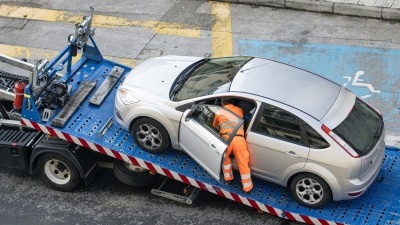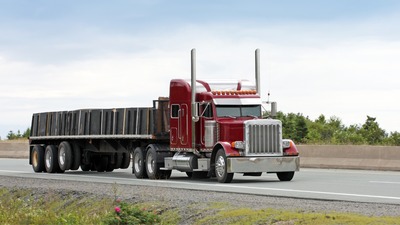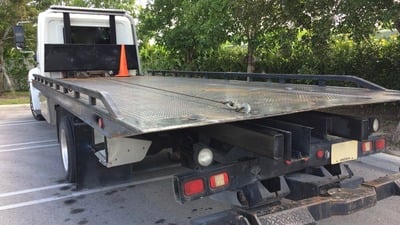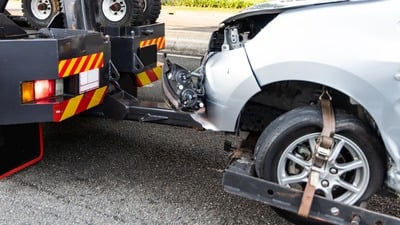Introduction to Trailer Anchors: Securing Your Load
When it comes to hauling, nothing is more critical than making sure your load stays put. This is where trailer anchors come in. Think of them as the superheroes of the trailer world, keeping everything from shifting, sliding, or worse, spilling over during transit. Whether you're moving furniture, hauling equipment for a job, or towing your boat to the lake, trailer anchors ensure that your cargo arrives just as it left - safe and secure. Some folks might overlook this, thinking any old strap or rope will do. But let me tell you, that's a risk you don't want to take. Without proper anchoring, you're not just risking your cargo, but also the safety of everyone on the road. Trailer anchors are designed to handle hefty loads and severe road conditions, making them non-negotiable for any serious hauler. So, before you hit the road, make sure anchoring your load is top of your checklist. Your future self, and everyone else on the road, will thank you.
Understanding the Basics of Trailer Anchors
Trailer anchors are not about fancy equipment or making your trailer look good. They're about safety and making sure your cargo stays where it's supposed to be while you're on the move. So, what exactly are trailer anchors? They are points where you can attach ropes or straps to secure your load firmly. Without these anchors, your stuff could easily shift or even fall off the trailer, leading to accidents or damage to your cargo. Think of these anchors as your load's seatbelt. There are different types of anchors like D-rings, E-track slots, and bolt-on anchors, but they all serve the same purpose: keeping your load safe. Don't skip on them. Trust me, investing in good quality trailer anchors is investing in your peace of mind.
The Importance of Using Trailer Anchors for Hauling
Using trailer anchors for hauling is like making sure your sneakers are tied tight before a run. You wouldn't want to trip and fall, right? Similarly, ensuring your load is securely tied down with trailer anchors prevents accidents on the road. These anchors are heroes in the hauling world. They keep your cargo in place, no matter how bumpy the ride gets. Think about it. Driving with a load that's shifting around is risky — not just for you, but for everyone on the road. It's about safety, first and foremost. But that's not all. Using trailer anchors also means protecting your cargo. You don't want your goods damaged, do you? Plus, imagine the peace of mind knowing your load won't suddenly decide to make a solo journey off the trailer. Secure your haul, avoid accidents, protect your cargo, and drive stress-free. That's the wise road to take.
Different Types of Trailer Anchors and Their Uses
When you're hauling, the last thing you want is your cargo shifting or tumbling around. That's where trailer anchors come in—they're like the unsung heroes keeping everything tight and tidy. Let's break down the main types of trailer anchors and what they're good for. D-ring anchors are pretty common and versatile. Bolt them onto your trailer's floor or walls, and you've got a solid point to hook straps or bungees onto. They're great for all sorts of loads, especially if you're mixing things up often. Then there are E-track anchors. These guys work with a track system that lets you attach and move anchor points wherever you need them along the track. Ideal for when you need flexibility in your load setup. For heavy-duty needs, weld-on anchors are your go-to. They're permanently attached, offering the strongest hold for your heftiest items. Think machinery or big equipment that needs to stay put no matter what. Lastly, we have recessed anchors. These are flush with the trailer's surface, so when you're not using them, you've got a smooth floor—no tripping over protruding anchors. Perfect for when you need a flat surface, like moving vehicles or foot traffic. Matching the right anchor type to your cargo ensures your stuff arrives just as it left—safe, secure, and in one piece.
How to Choose the Right Trailer Anchors for Your Needs
Next, think about the material. Steel anchors are common and offer great strength, but if you're near the ocean or haul through areas with a lot of road salt, stainless steel or galvanized options resist corrosion better. The type of anchor also matters. Some designs are better suited for flatbed trailers, while others work well with enclosed ones. The shape and size of your cargo might dictate whether you opt for flush-mounted anchors that stay out of the way or removable ones you can adjust as needed. Lastly, don't overlook compatibility with your trailer. Not all anchors fit all trailers, so checking that they can be securely attached to yours is a must. It's about finding a balance - the right strength, material, type, and compatibility for your hauling needs. That way, you keep your load secure and your mind at ease.
The Role of Trailer Anchors in Preventing Accidents
When it comes to hauling, whether it's for work or a weekend adventure, making sure your load stays put is key. This is where trailer anchors come into play. They're not just there to make things look secure; they play a crucial role in preventing accidents. Imagine you're cruising down the highway, and suddenly, the load shifts. It could cause serious trouble, not just for you but for others on the road. Trailer anchors ensure that doesn't happen. They keep your load stable and in place, reducing the risk of it sliding, tipping, or even causing the trailer to sway. This doesn't only protect your cargo but also the safety of everyone on the road. So, next time you're loading up for a haul, remember, securing your load with reliable trailer anchors isn't just a suggestion; it's a must for safe travel.
Installation Tips: Securing Your Trailer Anchors Properly
Getting your trailer anchors installed right is key. You don’t want stuff bouncing off the trailer halfway through your journey, do you? First up, pick the right spot. This isn’t about just slamming anchors anywhere. Find spots where the anchor can sit flush against the trailer. No sticking out, no weird angles. Got that? Good. Next step, drill correctly. Be precise. You’re making a home for your anchor, so it should fit snug. If you're off by a bit, the whole thing could end up weaker. Once you’ve drilled the holes, it’s time to secure the anchor. Use bolts and nuts that match both the size and the durability requirement of your anchors. Tighten them, but don’t go Hulk on them. Too tight might strip the threads or damage the trailer. Last but not least, give it a good tug test. Pull on that anchor as if you’re trying to make it fly. It shouldn’t budge. If it does, backtrack and check your work. Right, with these steps, your cargo isn’t going anywhere it shouldn’t. Safe and secured, just like it should be.
Maintenance and Care for Long-Lasting Trailer Anchors
To keep trailer anchors in top-notch condition, you need a little bit of elbow grease and some common sense. First off, always clean your anchors after a trip. Road grime, salt, and muck can corrode metal parts fast. Just rinse them with water and give them a good scrub once in a while. Drying them before storage is another smart move to prevent rust. Next, check for wear and tear. Look at the bolts, hooks, and the anchor points themselves. If something looks worn out or rusty, replace it before it fails when you need it the most. Lubrication is your friend. A bit of grease or oil on moving parts keeps everything working smoothly and protects against rust. Lastly, storing your anchors properly can make a big difference. Keep them in a dry, clean place away from direct sunlight and extreme temperatures. Simple steps, right? But following them will make sure your trailer anchors hold strong trip after trip.
Legal Requirements and Safety Standards for Trailer Anchors
When you're hitting the road with a trailer, knowing the legal requirements and safety standards for trailer anchors is not just about avoiding fines—it’s about keeping everyone safe. Different states have different rules, but there's a common thread: your load must be secure. It's that simple. This means using trailer anchors that meet the Department of Transportation (DOT) standards. If your load shifts or falls off because it wasn't properly secured, you're looking at serious trouble, from hefty fines to potentially causing accidents. Here’s the lowdown: the DOT requires that all cargo must be firmly immobilized or secured on or within a vehicle using appropriate means like tie-downs (which include trailer anchors), to prevent shifting during transport that might affect the vehicle's stability or maneuverability. In general, the requirements emphasize that the number and strength of your tie-downs (including anchors) must be adequate for the weight and type of cargo you're hauling. So, before you load up and hit the road, double-check that your trailer anchors are up to snuff. Not only will this keep you on the right side of the law, but it will also give you peace of mind knowing that you’ve done everything you can to prevent accidents caused by shifting loads. Safety first, always.
Conclusion: Enhancing Your Hauling Experience with Trailer Anchors
In the grand scheme of things, making sure your cargo is safe and secure isn't just about dodging fines or avoiding damage during transit. It's about peace of mind. Investing in quality trailer anchors is a critical step towards ensuring that peace of mind. Whether you're transporting furniture, construction materials, or your weekend toys, the robustness of your anchor points can make or break your hauling experience. They provide the grip needed to keep your load in place, regardless of the bumps and turns along the way. Think of them as the unsung heroes in the world of transport—quietly preventing disasters, one secure load at a time. Remember, the goal isn't just to reach your destination, but to do so safely and without incident. So, take the time, invest in the right trailer anchors, and make every journey a testament to your commitment to safety and efficiency. It's a small step, but it ensures your cargo arrives in the same condition it left, every single time.





